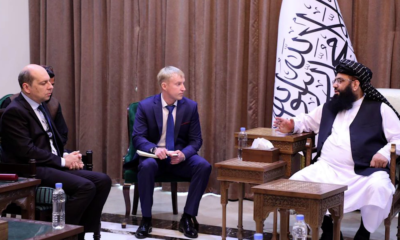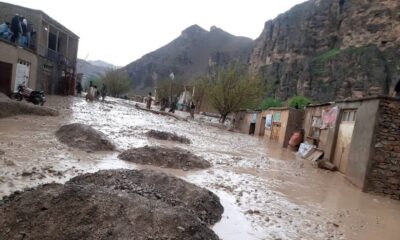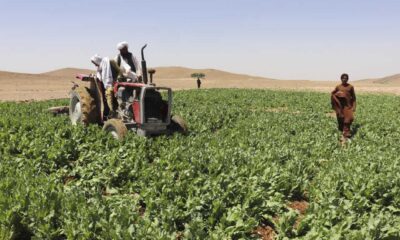Latest News
Afghanistan among the ‘worst of the worst’ in violating religious freedom: US panel

Afghanistan should join a list of the “worst of the worst” violators of religious freedom, a U.S. advisory body is recommending to the State Department.
The U.S. Commission on International Religious Freedom, said in its annual report issued Monday, that religious minorities have “faced harassment, detention and even death due to their faith or beliefs” since the Islamic Emirate of Afghanistan (IEA) came into power in August last year.
It also cited attacks on religious minorities by ISIS in Afghanistan, which is an enemy of the IEA.
Afghanistan is among 15 nations that the commission says should be on the State Department’s list of “countries of particular concern.” The commission, in its report summary, defined these as governments as the “worst of the worst” in tolerating or engaging in “systematic, ongoing and egregious violations of religious freedom.”
The commission, created in 1998 under the International Religious Freedom Act, makes nonbinding policy recommendations to the administration and Congress. The State Department has adopted some but not all of its recommendations in the past.
In the new report, the commission recommends maintaining 10 countries currently on the State Department list, including China, Eritrea, Iran, Myanmar, North Korea, Pakistan, Russia, Saudi Arabia, Tajikistan and Turkmenistan.
It also recommends adding four more in addition to Afghanistan — India, Nigeria, Syria and Vietnam. The commission criticized the Biden administration for removing Nigeria from the list last year.
The report said that in Afghanistan, many minority Jewish, Hindu and Sikh residents have fled the country after the IEA returned to power. It said many members of other religious minorities, such as Ahmadiyya Muslims, Baha’is and Christian converts are worshipping in secret for fear of persecution.
Several deadly attacks on Hazaras, Shiite minority, have been attributed to the ISIS-K (Daesh) which is hostile to the IEA and proven to be a security challenge.
The report said non-Muslim Afghans comprised a tiny fraction of the population. It said 99.7% of Afghans are Muslim, most of them Sunni Muslims, with about 10% to 15% Shiite Muslims.
“The Taliban (IEA), while they promised they would form an inclusive government, promising they would be a different kind of government, their actions have proven otherwise,” commission Chair Nadine Maenza said in an interview. She said that even members of the Sunni majority who don’t share the IEA interpretation of Islamic law are being required to conform to strict dress codes and other measures.
Latest News
IEA’s deputy PM invited to Russia to participate in an international meeting

Russian ambassador in Kabul, Dmitry Zhirnov, on Sunday invited the political deputy prime minister Mawlawi Abdul Kabir to participate in an international meeting that is expected to be held in Kazan city, Tatarstan.
According to a statement issued by the deputy PM’s office, in his meeting with the Russian ambassador, Kabir thanked him for the invitation to this meeting and said that relations between Russia and Afghanistan are important and friendly and Russian businessmen should invest in Afghanistan.
He added that relations between Moscow and Kabul benefit both sides and can help development and stability in the region.
According to the statement, the Russian envoy said that his country is ready to cooperate with Afghanistan in various fields and wants to expand bilateral relations.
He added that cooperation and increased interaction between the Islamic Emirate and Russia can contribute to stability and economic development in the region.
Latest News
Hundreds of families displaced due to floods in Ghor
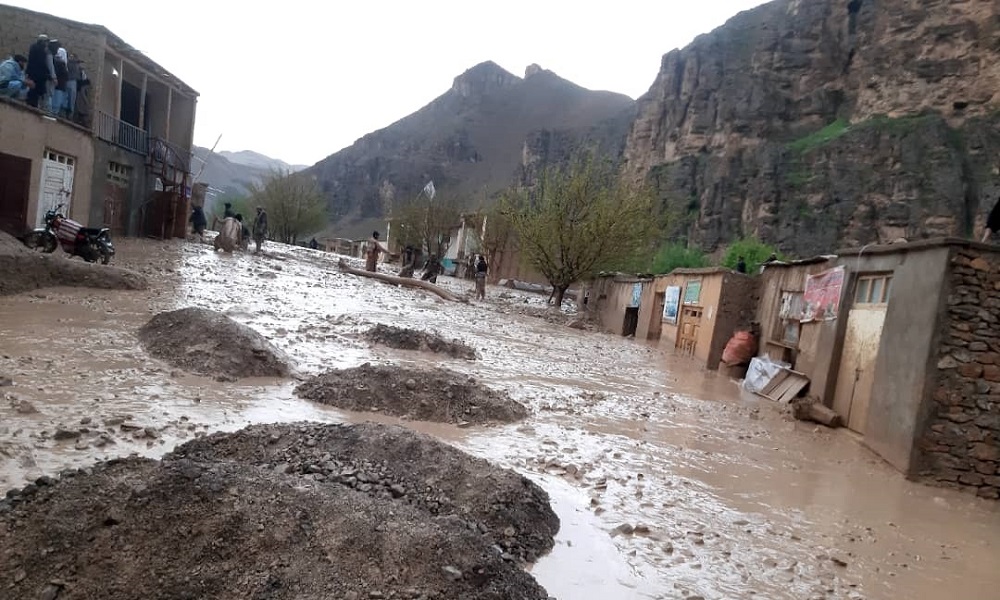
The Directorate of Migration Affairs in Ghor says one person was killed, two were injured and more than 500 families displaced due to Saturday’s floods in two districts of the province.
The directorate added that floods occurred in Murghab and Chaharsada districts of Ghor, which affected more than ten villages in Marghab district and six villages in Chaharsada district.
According to the directorate, 55 shops, and 10 residential houses have been destroyed and the roads between the two districts are also blocked.
The directorate quoted Mir Ahmad Mosamem, the head of migrant affairs in Ghor, as saying that families from their original places are living in the open air in the mountains and are in urgent need of basic assistance.
According to him, the possibility of more losses is expected.
Latest News
Ban on opium cultivation in Afghanistan cost farmers $1.3 billion

The ban on opium cultivation precipitated a staggering $1.3 billion loss in farmers’ incomes, equivalent to approximately 8 percent of the country’s GDP, the World Bank said in a new report.
The bank said that over the past two fiscal years, the real GDP of Afghanistan contracted by 26 percent, and the country’s economic outlook remains uncertain, with the threat of stagnation looming large until at least 2025.
According to the report, structural deficiencies in the private sector and waning international support for essential services are anticipated to impede any semblance of economic progress.
Half of Afghanistan’s population lives in poverty and 15 million people face food insecurity, it noted.
“Afghanistan’s long-term growth prospects depend on a significant shift from its previous reliance on consumption-driven growth and international aid to a more resilient, private sector-led economy that capitalizes on the country’s strengths,” said Melinda Good, World Bank Country Director for Afghanistan.
“For a sustainable future, Afghanistan needs to address harmful gender policies, invest in health and education, and focus on the comparative advantages it has in the agricultural and extractive sectors.”
The World Bank pointed out that the increase in Afghanistan’s trade deficit is another challenge for the country’s economy. According to the bank’s report, in 2023, Afghanistan’s imports increased by 23% and reached $7.8 billion.
-

 Sport5 days ago
Sport5 days agoAfghanistan announce T20 World Cup 2024 squad
-

 Sport4 days ago
Sport4 days agoNew Zealand to go ahead with Afghanistan cricket Test
-

 Latest News4 days ago
Latest News4 days agoWorld Bank donates $84 million to Afghanistan
-

 Regional5 days ago
Regional5 days agoIsrael will enter Rafah with or without Gaza hostage deal, Netanyahu says
-
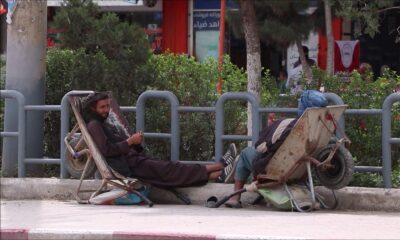
 Latest News4 days ago
Latest News4 days agoWork permits issued to over 2,000, including women: Labor Ministry
-

 Sport4 days ago
Sport4 days agoAll-round Stoinis helps Lucknow beat Mumbai in IPL
-

 Sport3 days ago
Sport3 days agoSorkh Poshan Khafi and Khadim FC winners in their ACL matches
-
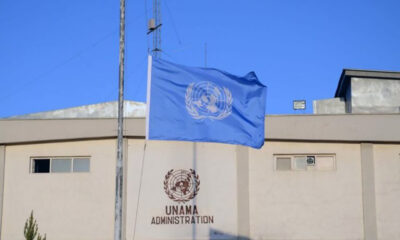
 Latest News3 days ago
Latest News3 days agoUNAMA issues latest rights report, notes ongoing challenges for women, girls and media


